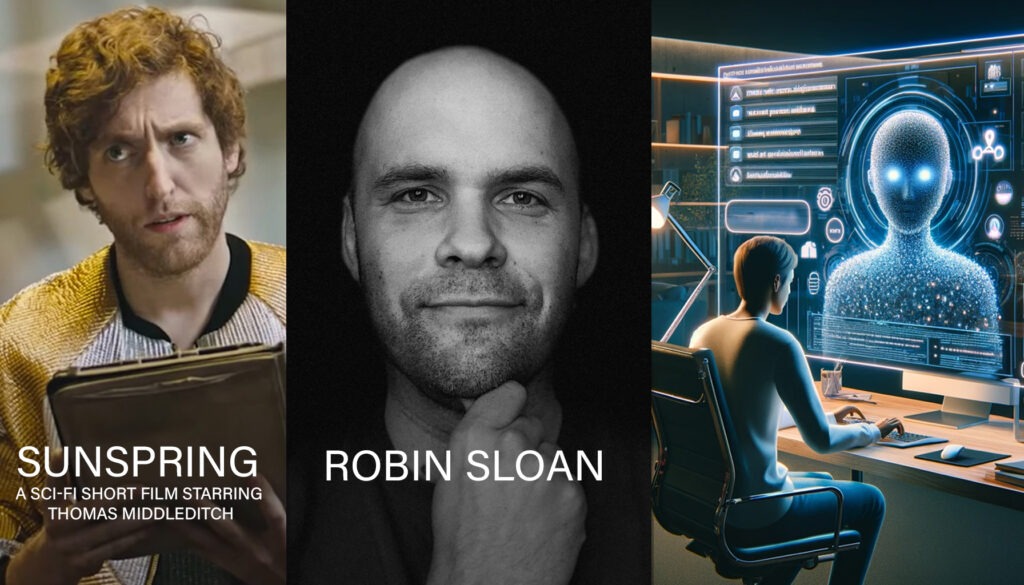In the fast-evolving landscape of artificial intelligence (AI), one of the most captivating advancements is its foray into the world of literature.
With AI’s increasing involvement in the creative process, the question emerges: Are we on the cusp of seeing robots as the next bestselling authors?
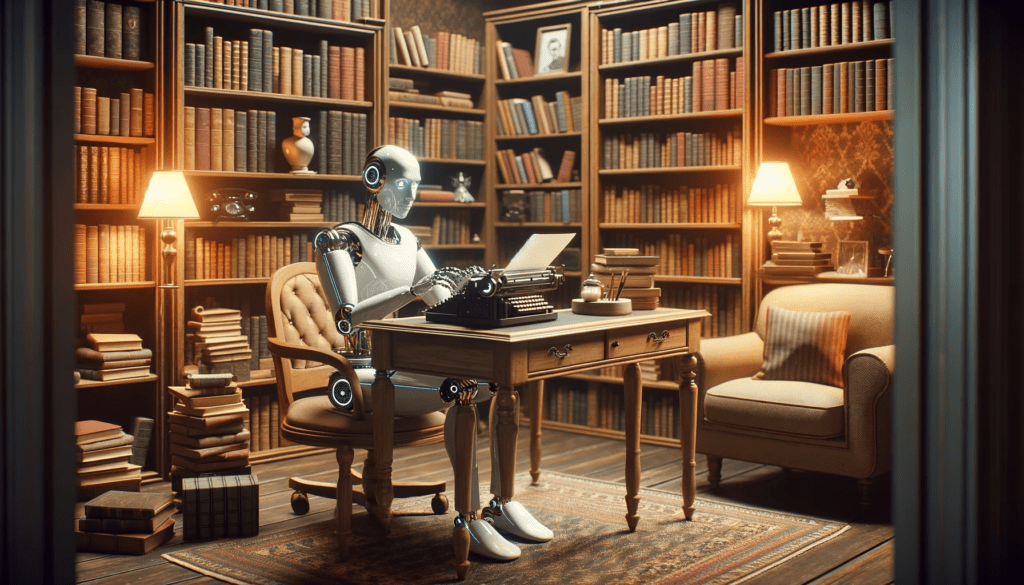
The Advent of AI Authors
The journey of AI in literature has evolved from generating simple text to crafting entire stories and novels. This leap is made possible by advanced machine learning and natural language processing technologies.
AI systems, by analyzing extensive literary works, are learning to master narrative structures, character arcs, and thematic nuances.
Consider the case of “Sunspring,” a short film scripted entirely by an AI named Benjamin. While its narrative was unconventional, it marked a significant milestone in AI’s creative capabilities.
Similarly, AI has been used to complete the unfinished novel “The Last Policeman” by Ben H. Winters, showcasing its potential to mimic specific authorial styles.
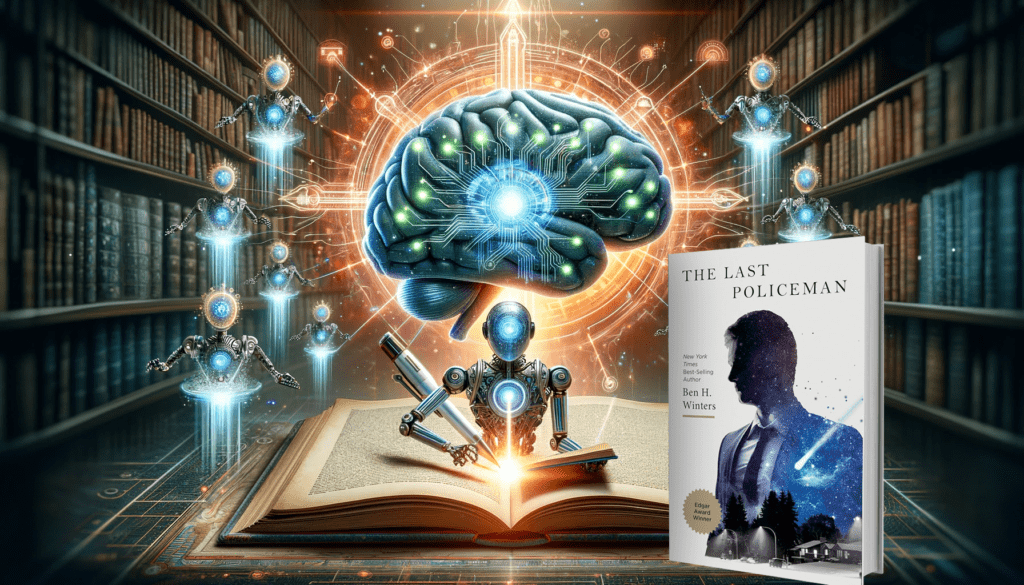
The Human-AI Synergy
The integration of AI in literature isn’t about replacing human authors but augmenting the creative process.
For instance, Robin Sloan, author of “Mr. Penumbra’s 24-Hour Bookstore,” uses an AI program to assist with sentence-level composition and idea generation. This collaboration represents a new frontier where human creativity synergizes with AI’s computational power.
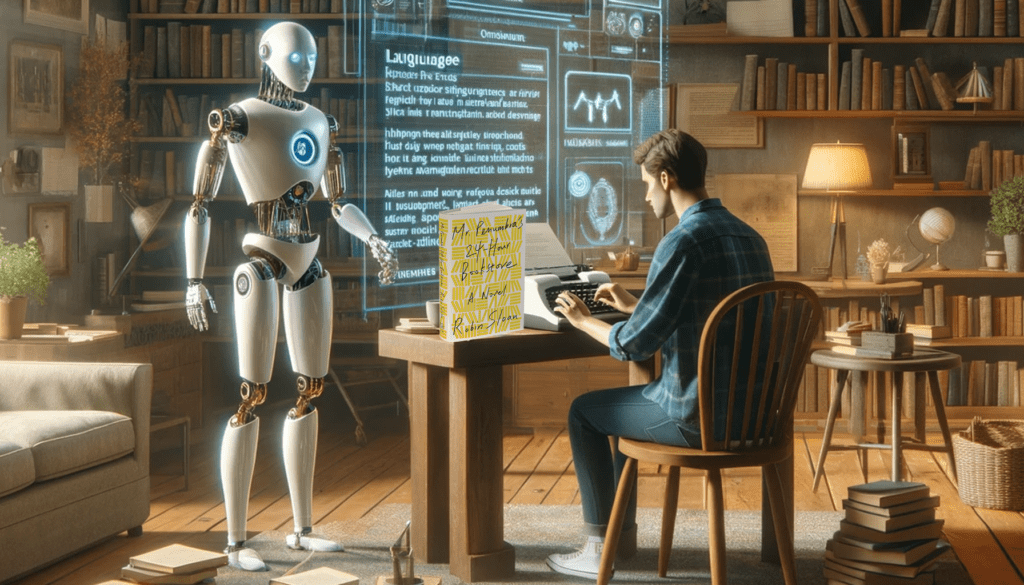
Perspectives on Creativity and Authenticity
The debate around AI in literature centres on the authenticity of AI-created content. Critics argue that AI lacks the inherent human experience and emotions essential for compelling storytelling.
However, proponents believe AI can offer new perspectives and narrative styles. Author Neal Stephenson, for instance, views AI as a tool that can unlock new creative avenues rather than a threat to human authorship.
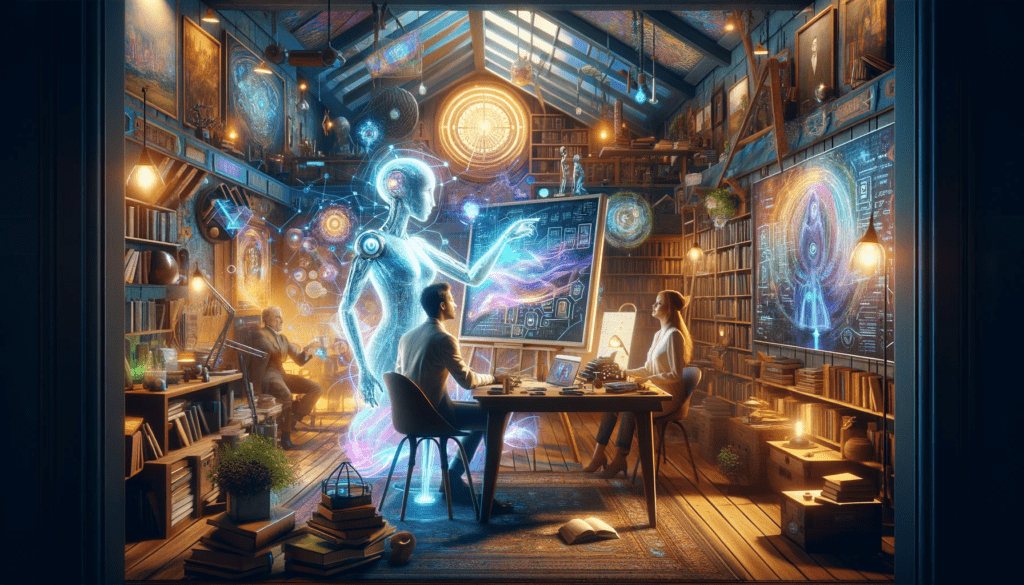
The Publishing Industry’s Response
The publishing world is beginning to embrace AI-written literature. “1 the Road,” written by AI using inputs from a road trip, is an example of AI’s potential to create new literary genres.
Such works challenge traditional publishing norms and open up discussions about authorship in the age of AI.
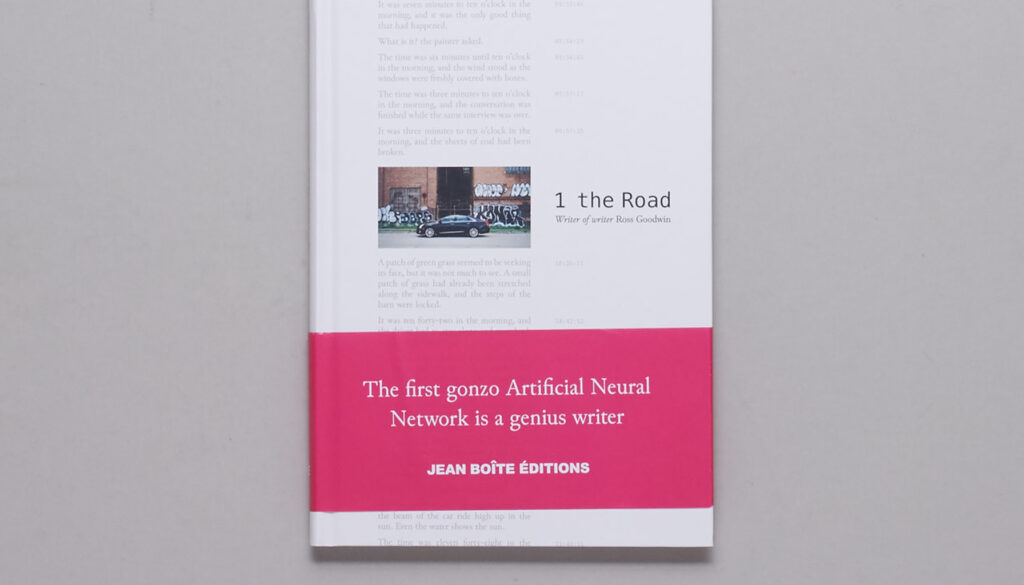
The Future Landscape
The future of AI in literature is ripe with possibilities. As AI technology becomes more sophisticated, we can anticipate a surge in AI-authored works that push the boundaries of traditional storytelling.
This doesn’t spell the end for human writers; instead, it heralds a collaborative era where AI enhances human creativity.
The integration of AI into literature is a ground breaking development, blurring the lines between human and machine creativity. With examples like “Sunspring” and authors like Robin Sloan leading the way, the potential for AI in literature is boundless.
What’s your take on AI-authored literature? Would you embrace a book written by AI, and do you believe AI can achieve the emotional depth that is quintessential to human-written stories? Let us know your thoughts in the comments!
